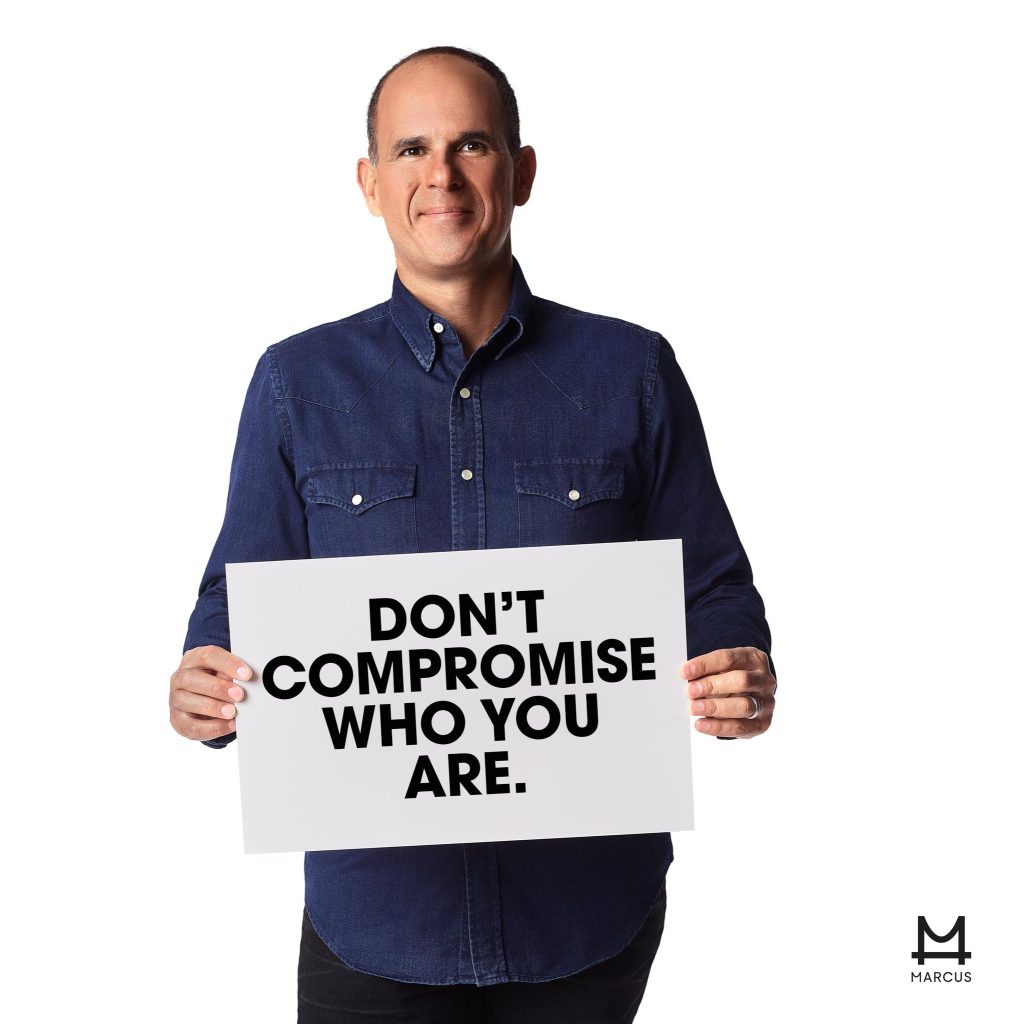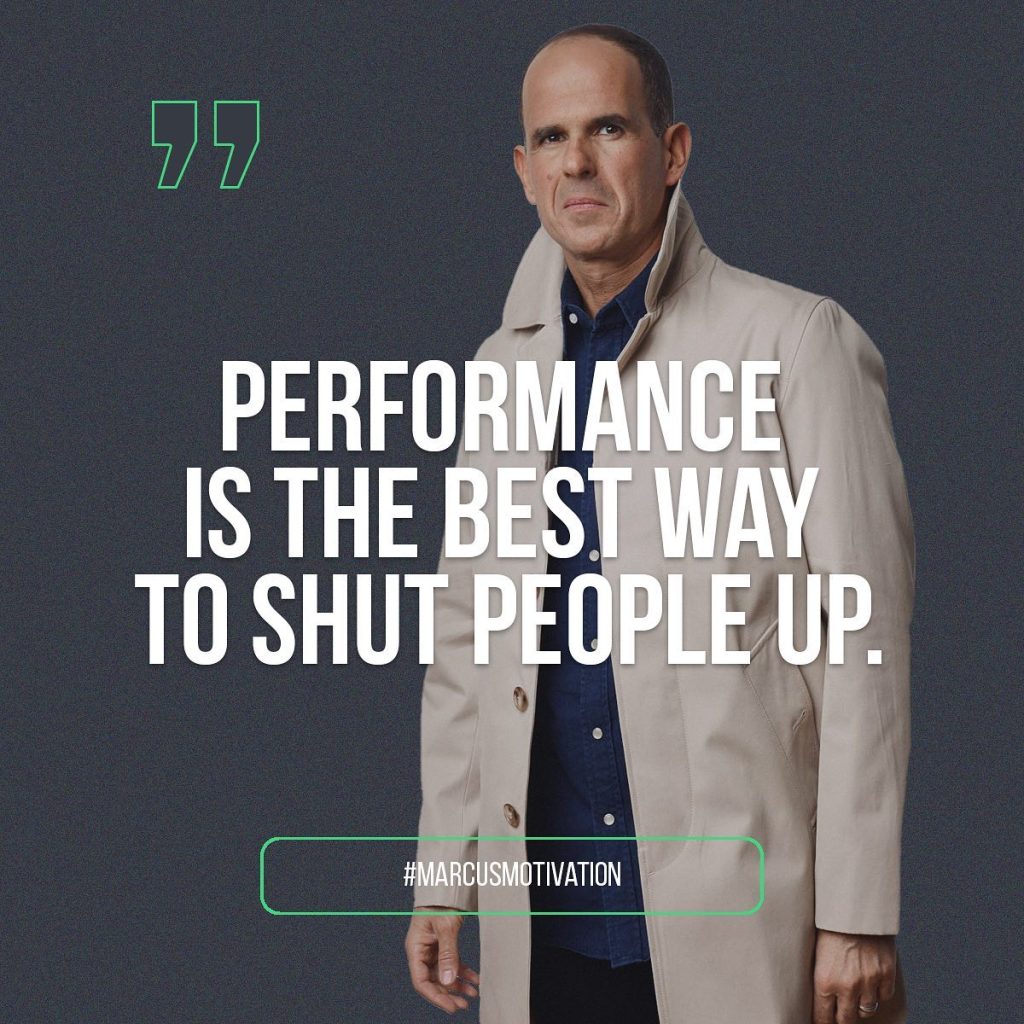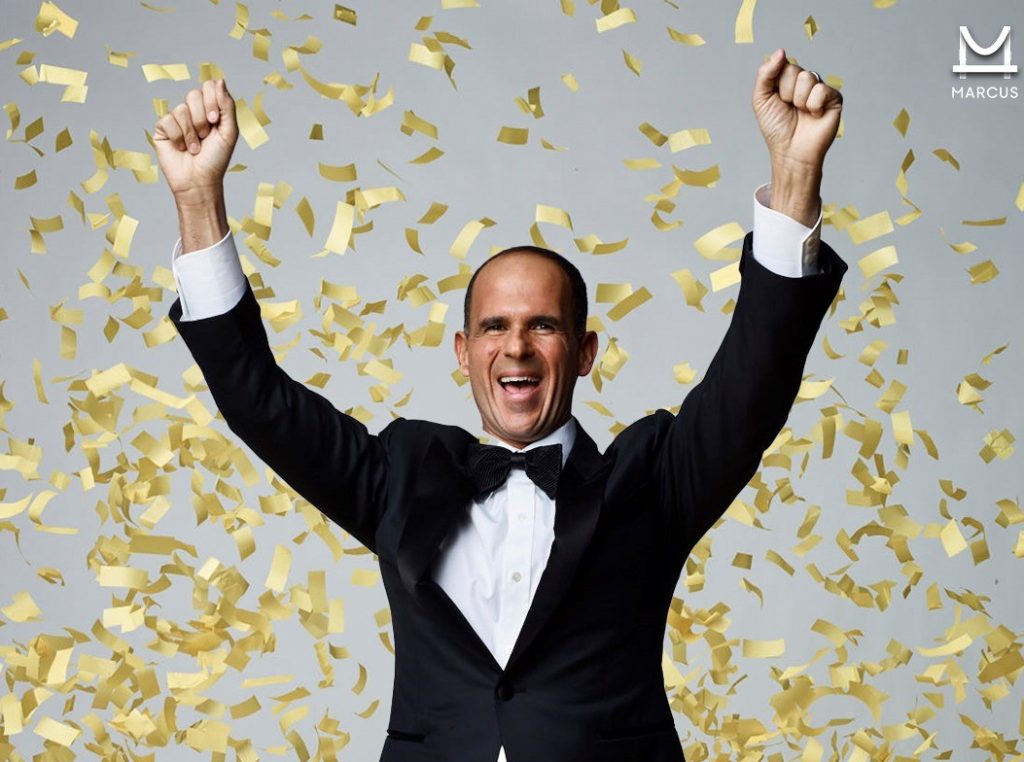"If you're going to create a connection with someone where you're both the same, that means you have to relate to each other, and the only way to create that relationship is to build trust"
Marcus Lemonis Tweet
Marcus Lemonis, a dynamic and multifaceted business figure, has seen and weathered it all. From humble beginnings and battles with self-confidence, he has transformed his vulnerabilities into an armor of resilience, leveraging his experiences to etch a remarkable trajectory in the business world.
He is a beacon for budding entrepreneurs, demonstrating how failure can metamorphose into success when coupled with introspection and an unwavering commitment to growth.
His journey is a testament to the power of people in business. By prioritizing empathy and connection, Lemonis navigated the tumultuous tides of economic downturns, redirecting his mindset and strategies to center those who matter most – the team on the front line.
Lemonis is known for his candidness, always offering a frank perspective on the often-glamorized world of entrepreneurship.
He prompts us to look beyond the buzzwords and focus on the grittier reality: that of being a ‘business owner.’ His wisdom suggests that true business success lies not just in profits, but in weathering criticism, managing rejection, and improving upon previous achievements.
His journey is a testament to the fact that success is subjective, and it’s not always about outrunning others. It’s about outdoing ourselves, pushing past our previous limits, and setting realistic, achievable metrics of success.
Check out more interviews with entrepreneurs here.
WOULD YOU LIKE TO GET FEATURED?
All interviews are 100% FREE OF CHARGE
Table of Contents
What challenges did you have to overcome at the beginning of your journey?
Marcus Lemonis: My lack of self-confidence was historically always my Achilles heel. When you have low self-confidence, it creates bad behavior and bad habits, because you try to overcompensate in other ways, and so, when I had no self-confidence, I would find myself eating to make me feel better, or fronting, trying to be someone I wasn’t, or find myself being reckless with money.
I would use and manifest all these excuses, why this was out there, and the reality of it was that it was all born out of my lack of self-confidence and self-worth. When I started to recognize that I don’t need to be less than or better than other people – that I just need to be the same as them, that was going to be the secret formula.
If you’re going to create a connection with someone where you’re both the same, that means you have to relate to each other, and the only way to create that relationship is to build trust.
To build trust, people need to find out who the real you is, and the more they find out who you are, the more they’ll reveal who they truly are.

You talk about people and how important they are in business.What kind of culture exists in your organization, and how did you establish it?
Marcus Lemonis: My focus on people really was an evolutionary process, and early on in my career, I didn’t have that focus on people; I had that focus on me.
It was all about me, what I wanted to do, and what I thought, and I realized as I had failure after failure, struggle after struggle, relationship broken after relationship broken, that the common element in that process was the way I was looking at myself and my interaction with other folks.
And during the 2008/2009 financial crisis, I made a very hard pivot when I had to lay off more people than I would’ve imagined. I saw the consequences of that and how it made me feel, and I realized that I needed to make a change and re-frame my brain to understand that the business wasn’t about me, or about anything else other than the folks on the front line driving it.
It also gave me the insight to hire, attract, recruit, and be close to people that were better than me in every aspect. The minute I started to take on that approach, I started to get these small wins, and once I started to get those small wins, I liked how winning felt. I convinced my¬ self that the more I would do that, the more I would win, and it kept happening and happening, and it was kind a crazy.
I didn’t grow up with this thought process; I had to suck at something, fail, and struggle, to realize that that was the process. If you think about it like a chef, they try to make new recipes with all these ingredients, and even if it ends up tasting bad, eventually they’ll put together something that tastes amazing. In that sense, people would be your ingredients.
What makes it interesting for you to be a part of Aspire?
Marcus Lemonis: I think the most interesting part is meeting people with different backgrounds, with different aspirations, and figuring out how to get all of them to find value in the person they are sitting next to, the person in the hallway, etc. There are a lot of events out there that feel like networking events; this isn’t that.
If you’re looking to grow your business or who you are, anytime you get in a room with like-minded people, you learn a lot. And for me personally, I’m learning more than I ever would’ve imagined.
Are there any pitfalls you need to watch out for currently?
Marcus Lemonis: I find myself to be very gullible, and very trusting. I believe what everybody always tells me, and I find the good in people. I’m working hard to never change that part of me, but to surround myself with people that will check and balance that, for my own protection.
I’ve learned that the more I can insulate myself from my own deficiencies, like over-trusting, over-believing, over-promising, or over-giving, the more I’ll be in good shape.
The one thing that sticks in my mind that’s the clearest is that generosity is something I feel strongly about, but there’s a fine line between generosity and exposing yourself to being taken advantage of, those lines are blurry for me, and I struggle with it, I have a hard time saying “no,” and I always want to say “yes” so that’s a challenge for me, even to this day.
What advice would you give to someone who is trying to become an entrepreneur in today’s economy?
Marcus Lemonis: I’ll be very careful with the word entrepreneur. I think that word is overused; to me, it’s “business owner!’ Entrepreneur to me sounds like a transition word from employed to unemployed to looking to start my own thing.
I would first and foremost ask people to reframe their mindset and say, “I want to be a businessowner,” not an entrepreneur, which requires discipline, sacrifice, leading people, developing, and absorbing criticism of your product/service.
It requires you to have a stomach to take rejection from investors or banks, and those are really important skills in my advice to people who want to become business owners, chart their own course, generate their own revenue, and make their own profit. You shouldn’t even attempt to do that unless you’re able to withstand all the things I mentioned.
It’s a very lonely place, being a business owner. You’re not gonna get positive affirmation; no one’s gonna tell you how wonderful you are. They’re gonna tell you how dumb you are, how wrong you are, what a failure you are, etc.

When you look at the Aspire crowd, is there
a way you would define success if you’re talking to the audience? What’s your definition of success?
Marcus Lemonis: Well, my definition of success is my own definition. And I don’t want anyone else casting their definition on your, or you trying to assess someone else’s level of success and laying that layer on yourself.
Success is going to mean different things to different people, and sometimes getting up in the morning and showing up on time is a version of success to people, because they’ve struggled with it their whole life.
Sometimes, being able to lead and train people is a version of success, because they have social anxiety, or they’re not comfortable dele¬ gating. But another version of success, that we should never act like it’s not, is – there’s a scorecard in business, and whether we like it or not, money is involved.
And it’s not the quantity of it, it’s the achievement of whatever that objective was; and so if you open up a business and say, “I would like my business to survive for 18 months, even though I know in the first 18 months it’s going to lose money because I’m investing in product/ staff development,” then achieving that goal is success.
You don’t put a comma or a number of zeros behind it; you put a list of things that are important to you, that are part of your objectives and business plan, and then you achieve it. Here’s a good example:
If you’re a runner, and you go out and run a mile, my definition of success is improving on your previous achievement, not what someone else does. If l run a 6-minute mile, my definition of success is if I can get to 5:59, I have achieved a goal.
And there’s training, and dedication, and the proper sleep, and the proper education, and weightlifting, and all those things to do that. And so, if someone else runs a 5-minute mile, are they more successful than you? No, because maybe their previous race was 4:59.
You got to set your own metrics, and they have to be realistic and achievable. And they have to be absent excuses; don’t be telling me all the reasons you didn’t get there, because everybody has their reasons; nobody cares.
Speaking of achievements, are there any moments you would say have been the most satisfying for you in business?
Marcus Lemonis: As much as I hated taking my company public – and I don’t really enjoy having a public company – there was something gratifying about starting something and having other people think it’s such a good idea that they would invest in you.
And I would say that the greatest achievement for me is the validation of somebody else’s willingness to put their hard-earned money into your idea. That means that you have done the things to earn respect and credibility and that your idea for your product/service has done something to get somebody’s attention.
And when I took my company public – even though I hated the moment in one sense -I could say to myself in the back of the room, “Look, I don’t love this, but it is kinda cool.”

Anything about your roots and experiences that had a massive impact on your life and career along the way?
Marcus Lemonis: It isn’t my heritage that has impacted me; it’s my path to be an immigrant in this country that has motivated me. It isn’t born out of this ”American Dream” theme or anything like that; it’s truly my intense feeling of obligation to leave the place better than I found it.
Many people can’t relate to this, but when you’re given permission to be part of a community that you’re not entitled to be part of, you have this responsibility to make that community better, at all costs, at whatever peril.
Many people have said to me over the years that that’s a ridiculous way to look at it, and my response is, “Right, but I’m having this conversation with you about my success or about my financial achievements because I was given those opportunities, and I don’t take it lightly.”
And yes, I did the work, and there were people that helped me, and yes,
I took the risk and all those things, but I was still given an opportunity that nobody needed to give me. And so, because of that, I feel this crazy amount of obligation to pass that opportunity to other people, even if sometimes at my own peril.
Is there a speaker you would pay to go see?
Marcus Lemonis: Jesus.
If you were to write a book about yourself, what would you call it?
Marcus Lemonis: “The Price of Success.”
You’re known as a person who likes to have your hands on a lot of things at the same time. Is there anything that you’re working on right now that you’d like to share with the readers? (Host mentions this was gonna get published in August.)
Marcus Lemonis: I feel like in my business career, I’ve had one major accomplishment, and that’s 14k people in my camping business.
I’m working on trying to figure out what is my next additional great achievement for the back half of my life. I don’t want to go down as a one hit-wonder.
George Wright III, VIP Contributor to ValiantCEO and the host of this interview would like to thank Marcus Lemonis for taking the time to do this interview and share his knowledge and experience with our readers.
If you would like to get in touch with Marcus Lemonis or his company, you can do it through his – Linkedin Page
Disclaimer: The ValiantCEO Community welcomes voices from many spheres on our open platform. We publish pieces as written by outside contributors with a wide range of opinions, which don’t necessarily reflect our own. Community stories are not commissioned by our editorial team and must meet our guidelines prior to being published.
Read Special Edition Articles
- 10 Traits of Highly Successful Entrepreneurs
- Unlocking the Secrets of Smart Goal Setting Leads to Success
- Maximizing the Power of Networking: The Key to Growing Your Business
- Conquering the Top 5 Most Common Challenges Faced by Entrepreneurs
- Discovering the 3 Essential Steps to Building a Strong, Effective Team as a Startup Founder
- The 7 Key Roles of Market Research in Startup Success
- 5 Ways to Unleash the Benefits of Mentorship for Entrepreneurs
- Mastering Financial Management: The Key to Success for Small Business Owners
- The Impact of Artificial Intelligence on Job Markets
- Resilience and Persistence: The Two Essential Ingredients for a Successful Business






